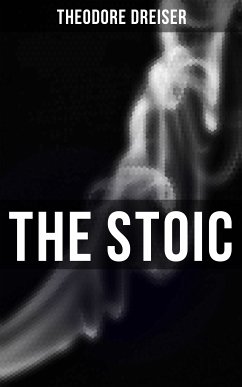Theodore Dreiser's novel 'The Stoic' is a thought-provoking exploration of human nature and the struggles one faces when navigating the morally complex waters of society. The book delves into themes of determination, fate, and the consequences of one's actions, all wrapped in Dreiser's signature naturalistic writing style that captures the raw emotions and intricate relationships of the characters. Set against the backdrop of early 20th-century America, 'The Stoic' offers a nuanced portrayal of the individual's fight against societal norms and personal desires. Dreiser's vivid descriptions and sharp insights make this novel a profound and gripping read for those interested in psychological realism and social commentary. As a prominent figure in American literature, Theodore Dreiser drew inspiration from his own experiences and observations of the world around him to craft compelling narratives that cut to the core of human existence. His unflinching portrayal of human flaws and aspirations shines through in 'The Stoic,' showcasing his deep understanding of the human condition. Dreiser's keen eye for detail and nuanced character development make 'The Stoic' a literary masterpiece that continues to resonate with readers today. I highly recommend 'The Stoic' to readers who appreciate insightful social critiques and profound character studies. Dreiser's masterful storytelling and insightful commentary make this novel a must-read for anyone interested in exploring the complexities of human nature and society.
Dieser Download kann aus rechtlichen Gründen nur mit Rechnungsadresse in BG, B, A, EW, DK, CZ, D, CY, H, HR, GR, F, FIN, LT, I, IRL, NL, M, L, LR, S, R, P, PL, SK, SLO ausgeliefert werden.








